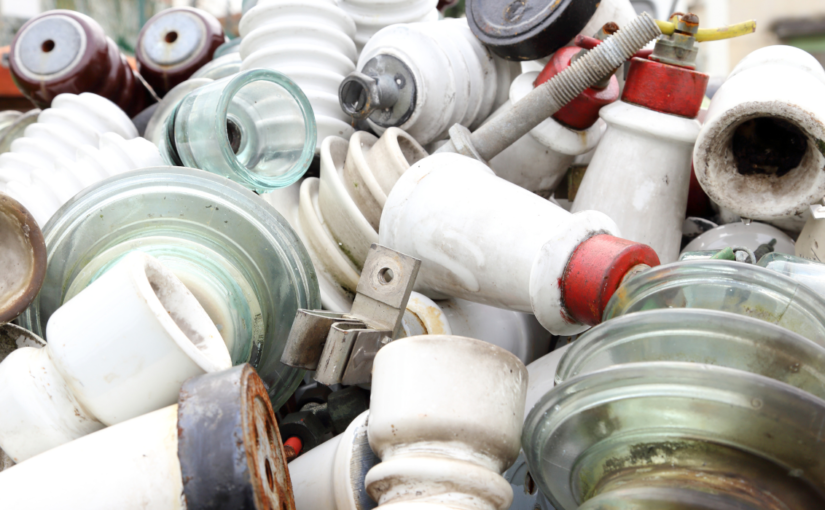back
Addressing Hazardous Materials in Real Estate Transactions
04-2023

The environment and human health are both significantly at danger from hazardous materials. As a result, handling hazardous materials is a crucial factor in real estate deals. To ensure a secure and effective transaction, it is crucial to identify and treat hazardous items whether you are the buyer or the supplier. The numerous hazardous materials frequently encountered in real estate transactions will be discussed in this blog, along with the activities that may be taken to handle them.
Common Hazardous Materials in Real Estate Transactions
Hazardous elements can be found in many real estate transactions, but some of the most typical ones are as follows:
- Asbestos: A naturally occurring substance that was once widely used in construction supplies. Lung cancer and mesothelioma are only two of the significant health issues that asbestos exposure can result in.
- Lead: Until it was outlawed in 1978, lead was frequently used in paint. Particularly in children, lead exposure can result in developmental delays, learning difficulties, and other health issues.
- Radon: A radioactive gas that naturally exists in rock and soil. Lung cancer risk can be raised by radon exposure at high levels.
- Mold: Mold, which can grow in moist or humid environments, is a common source of allergic responses, asthma episodes, and respiratory infections.
- PCBs: Polychlorinated biphenyls, or PCBs, were previously widely utilized in appliances and other products. Many health issues, including cancer and reproductive difficulties, can be brought on by PCB exposure.
Addressing Hazardous Materials in Real Estate Transactions
A property’s value and desirability may be significantly impacted by the presence of hazardous elements there. As a result, it’s crucial to discuss these items in real estate deals. The following actions can be performed to deal with dangerous materials:
- Inspection: It is crucial to have a thorough inspection of the property performed by a licensed inspector before engaging in a real estate transaction. The inspector should test for asbestos, lead, radon, mildew, and other toxins, and they should be educated to recognize hazardous materials.
- Disclosure: It’s crucial to inform the other party in the transaction if any hazardous materials are found during the inspection. This can entail completing a disclosure form that lists any hazardous materials present and any remediation actions that have been completed.
- Remediation: If potentially dangerous items are found, remediation work may be required. This could entail eliminating lead paint, asbestos-containing items, reducing radon levels, or dealing with mold growth.
- Documentation: It’s critical to keep track of all remedial activities, including the techniques utilized and the outcomes of any testing. Potential buyers can be convinced that hazardous items have been adequately handled by using this documentation.
- Legal Aspects: Dealing with hazardous materials in real estate transactions may include legal ramifications. State and federal legislation, for instance, may call for specific disclosures or corrective actions. In order to assure compliance, it is crucial to speak with a lawyer who is knowledgeable about these regulations.
Benefits of Addressing Hazardous Materials in Real Estate Transactions
Dealing with hazardous materials in real estate transactions can have a number of advantages, such as:
- Protecting Human Health: A major risk to human health can arise from the presence of hazardous materials. By dealing with these issues, a safe living or working environment can be achieved.
- Environment Protection: When hazardous items are not properly disposed of, they can have a harmful effect on the environment. By dealing with these items, you can lessen the chance of contamination while also protecting the environment.
- Maintaining Property Value: Homes with hazardous materials may not be as appealing to buyers, which could diminish their value. By addressing these elements, the property’s value can be maintained and its appeal to buyers can be increased.
- Minimizing Responsibility: Failure to correctly manage hazardous chemicals may subject the property owner to legal liability. The risk of legal liability can be decreased by property owners by dealing with these materials.
The environment and human health are both significantly at danger from hazardous materials. As a result, how these items are addressed in real estate transactions is crucial. To ensure a secure and effective transaction, it is crucial to identify and treat hazardous items whether you are the buyer or the supplier. Inspections, disclosure, corrective action, documentation, and legal factors can be involved. You can safeguard the environment, protect people’s health, maintain the value of your property, and lower your responsibility by dealing with hazardous items.
F2H Capital Group is a debt advisory firm specializing in negotiating the best terms for your commercial real estate projects. The company offers a range of financial products and services, including fixed loans, bridge loans, and construction loans across all asset types. Please contact us for any of your financing needs.

